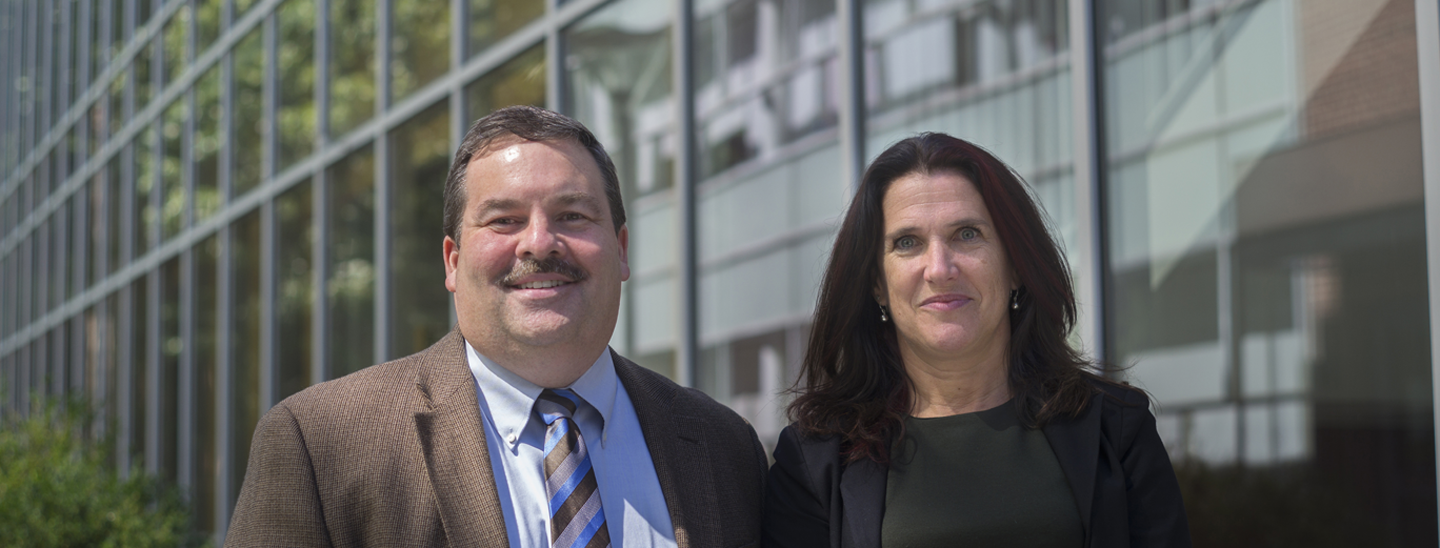Dominique Brossard, professor of life sciences communication at the University of Wisconsin-Madison, and William K. Hallman, professor of human ecology at Rutgers University, have joined the Annenberg Public Policy Center (APPC) as visiting scholars.
Brossard and Hallman will be focusing on the Science of Science Communication, and both have already worked with APPC researchers on projects involving public knowledge and perceptions of genetically modified organisms (GMOs). Brossard and the University of Wisconsin-Madison’s Department of Life Sciences Communication collaborated on a survey with APPC, published in July, on Americans’ thoughts about the safety of genetically modified foods and mandatory labeling of GMO foods. Hallman worked with APPC on an August survey about GMO food labeling and the use of QR codes by consumers to learn more about genetically modified products.

Brossard is a professor and chair in the Department of Life Sciences Communication at the University of Wisconsin-Madison and an affiliate of the UW-Madison Robert & Jean Holtz Center for Science and Technology Studies, the UW-Madison Center for Global Studies and the Morgridge Institute for Research. Her research focuses on the intersection between science, media and policy, and she is an expert in public opinion dynamics related to controversial scientific issues. She has served on various committees producing reports for the National Academies of Sciences, Engineering, and Medicine, including the most recent comprehensive report on genetically engineered crops. She has published numerous research articles in outlets such as Science, Science Communication, the International Journal of Public Opinion, Public Understanding of Science, and Communication Research (her publications are listed on Google Scholar). She will be at APPC for the fall 2016 semester.
Hallman is a professor and chair of the Department of Human Ecology and former director of the Food Policy Institute at Rutgers, the State University of New Jersey. An expert in risk perception and risk communication, he has written extensively on food safety, food security, and public perceptions of controversial issues concerning food, technology, health, and the environment. He currently serves on a committee of the National Academies of Sciences, Engineering, and Medicine on the science of science communication, and he recently co-authored a handbook on risk communication applied to food safety for the Food and Agriculture Organization of the United Nations and the World Health Organization. (You can find a list of his publications on Google Scholar.) He will be at APPC through the spring 2017 semester.
In addition to the visiting scholars, APPC has been joined by five new postdoctoral fellows: Azeez Adebimpe, Ariel Hasell, Ben Lyons, Brianne Suldovsky, and Meghnaa Tallapragada. Adebimpe is working with Dan Romer in the Adolescent Health and Risk Communication Institute, while the others have joined APPC researchers in the Science of Science Communication.

